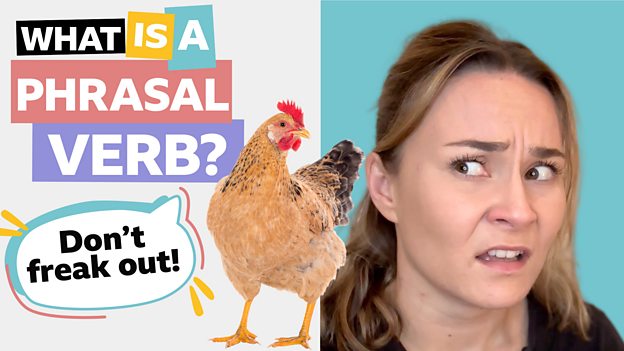6 Minute English
Intermediate level
The stories behind our names
Episode 230831 / 31 Aug 2023

Introduction
Everyone has a name. It's an important part of our identity. But names can also have meanings that reveal our culture and history. Neil and Beth discuss this and teach you some useful vocabulary.
This week's question
What was the most popular name for baby girls in the UK last year. Was it:
a) Florence?
b) Olivia? or,
c) Amelia?
Listen to the programme to hear the answer.
Vocabulary
typical
containing the most usual features of a particular type of person or thing; a good example of that type
mass migration
historical movement of large groups of people from one geographical area to another
pull the threads
(idiom) investigate deeper into something to reveal the hidden connections behind it
anglicised
changed to appear or sound English
(can't) be bothered
(don’t) make the effort to do something
tricky
difficult to manage; requiring careful use
TRANSCRIPT
Note: This is not a word-for-word transcript.
Neil
Hello. This is 6 Minute English from BBC Learning English. I’m Neil.
Beth
And I’m Beth.
Neil
Names tell us a lot about a person. Many names have meanings – Paul, for example, means ‘humble’, and the name, Anna, originated from a Hebrew word meaning ‘graceful’.
Beth
Our name is an important part of our identity - if you hear someone shout your name in the street, you automatically turn to look. But names also reveal cultural and family connections which give us a sense of our history and our place in the world.
Neil
In this programme, we’ll be meeting a writer whose name combines two very different sides of her identity – one English, the other Indian. Sheela Banerjee was born in Hayes, West London to parents from the east Indian state of Bengal. We’ll be hearing about Sheela’s research into her name and family history, and, as usual, we’ll be learning some useful new vocabulary as well.
Beth
But first I have a question for you, Neil. As every parent knows, choosing your child’s name isn’t easy. Names go in and out of fashion, and a name that was popular one year soon becomes old-fashioned. So, what was the most popular name for baby girls in the UK last year. Was it:
a) Florence?
b) Olivia? or,
c) Amelia?
Neil
Hmm, I’ll guess it was Olivia.
Beth
OK, Neil, we’ll find out the answer later in the programme. Sheela Banerjee’s name came out of her parents’ journey from British India to West London in the 1950s. Here she tells BBC Radio 4 programme, Word of Mouth, how reflecting on this journey inspired her new book, What’s in a Name?, which blends her own life story with history and politics:
Sheela Banerjee
…as soon as I started thinking about it, you know, this name Sheela which is, you know, I was a 7 year-old girl living in Hayes called Sheela - this very typical English name - you know, what's that name doing there… if you start to pull at that the threads lead you to the story of my Bengali parents’ migration over here, to mass migration from the colonies after the war to this country, and then Banerjee contains all these stories about colonialism and caste…
Neil
Her parents wanted their daughter to feel safe in London so they gave her a typical English name, Sheela. If something is typical it shows the usual features of a particular type of person or thing - it’s a good example of that type.
Beth
She may have had a typical English name, but with dark skin and hair, Sheela didn’t look like some people's image of a typical English girl. Wanting to find out more about her culture, Sheela started to pull the threads behind her family story. Pulling the threads is an idiom meaning to investigate deeper into something, revealing the hidden connections behind it.
Neil
What Sheela discovered was a story of mass migration – periods in history when large groups of people move from one geographical area to another. Mass migrations have happened throughout history. In the 1950s and 1960s, many South Asian families, including Sheela’s, migrated west to cities in the UK.
Beth
But this is just one half of the story. Sheela’s family name, Banerjee, reflects her roots in the Bengali culture of East India where surnames tell a lot about a person’s social status, or caste. Here’s Sheela explaining more to BBC Radio 4 programme, Word of Mouth:
Sheela Banerjee
…it is an Indian name, but actually it's not my real name… You've got names like Banerjee, Mukherjee, Chatterjee which, you know, nowadays people hear over here, but Banerjee is an anglicised form of my original name which would have been ‘Bandyopadhyay’ and it’s a name that was changed by the British when they went over there because they really basically couldn't be bothered to pronounce it, or couldn't pronounce it, and for me it's always been a very mixed name because it signifies that we were, you know, colonial subjects and so it's a tricky name to be carrying around.
Neil
Sheela’s surname is actually pronounced ‘Bandyopadhyay’ but during colonial times the name became anglicised - it was changed to sound more English. This happened at lot: the surnames Chattopadhyay became Chatterjee and Mukhopadhyay became Mukherjee, either because the British rulers couldn’t pronounce them, or because they couldn’t be bothered – they didn’t make the effort.
Beth
Sheela feels her anglicised surname has always been tricky - difficult to use, because of the association with colonialism and oppression. Ironically, it was London, the capital of the British Empire, that in modern times became the destination for migrants from all over the world.
Neil
OK, it’s time to reveal the answer to your question, Beth. What was the most popular girls’ name in 2022? I guessed it was Olivia…
Beth
Which was… the correct answer! In 2022, Olivia remained the most popular girls’ name for the sixth year in a row, and was given to 3,649 baby girls. OK, let's recap the vocabulary from this programme starting with typical – containing the most usual features of a particular type of person or thing.
Neil
If you pull the threads of something, you investigate it more deeply to find the hidden stories behind it.
Beth
Mass migration is the historical movement of large groups of people from one place to another.
Neil
If something is anglicised it’s changed to sound or appear English.
Beth
If you can’t be bothered to do something, you don’t make the effort to do it.
Neil
And finally, if something is tricky, it’s difficult to manage and requires careful use. Once again, our six minutes are up. Goodbye for now!
Beth
Bye!
Latest 6 Minute English
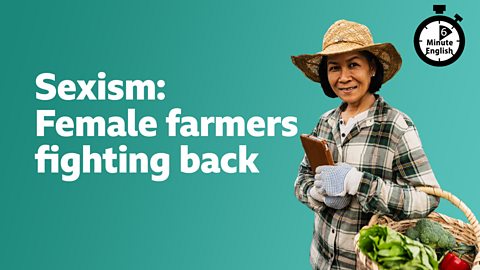
Sexism: Female farmers fighting back
Episode 231228 / 28 Dec 2023
How can female farmers beat rural sexism?
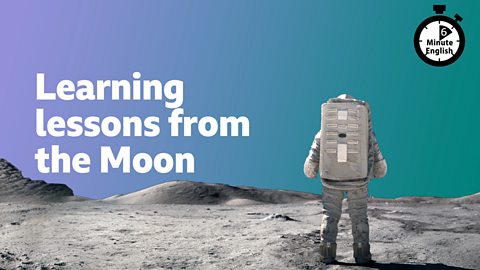


Invasive species: Why don't we eat them?
Episode 231207 / 07 Dec 2023
Could we eat invasive species?

What and where is Little Italy?
Episode 231130 / 30 Nov 2023
Mozzarella, ricotta, cannolis and focaccia... Where are we? Little Italy of course!

Social media and teenage health
Episode 231123 / 23 Nov 2023
What are the health risks of social media for teenagers?

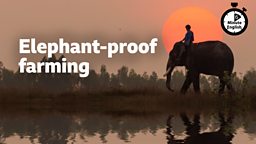



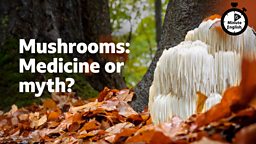


Sounds that make you want to scream
Episode 230928 / 28 Sep 2023
Are there any sounds you find upsetting?




The stories behind our names
Episode 230831 / 31 Aug 2023
What do our names reveal about our culture and family history?


Are you unhappy at work?
Episode 230817 / 17 Aug 2023
Does work leave you feeling bored and exhausted?







Is it wrong to eat plants?
Episode 230629 / 29 Jun 2023
Should we treat plants with the same consideration we treat animals with?



The art of subtitling
Episode 230608 / 08 Jun 2023
Hear how subtitles can help bring TV and movies to life

Ecotourism: good or bad?
Episode 230601 / 01 Jun 2023
We discuss the growing popularity of ecotourism.

Can climate change cause more disease?
Episode 230525 / 25 May 2023
With warming temperatures, mosquitos are now spreading to new areas, including Europe.



Ice and the origins of life on Earth
Episode 230504 / 04 May 2023
We talk about an essential element for life to thrive.

Women in politics
Episode 230427 / 12 Apr 2023
We discuss some of the reasons why women make up only 26% of the world's politicians.

What's the point of museums?
Episode 230420 / 20 Apr 2023
We discuss the role of museums in the 21st century and the items taken from different countries.

How culture affects sadness
Episode 230413 / 11 Apr 2023
What ways do you think culture can influence sadness?

Would you eat a Kalette?
Episode 230406 / 06 Apr 2023
Hear about a new kind of vegetable making an entrance in British kitchens

Do you get jealous easily?
Episode 230330 / 06 Mar 2023
Let's talk about the ugly green-eyed monster


Food and mood
Episode 230316 / 16 Mar 2023
We look at the link between what you eat and how you feel.

How to talk to a climate denier
Episode 230309 / 09 Mar 2023
The dos and don'ts of trying to discuss science with someone who doesn't believe in it

Losing your mother tongue
Episode 230302 / 02 Mar 2023
Hear the story of a woman who replaced her native Czech for English.
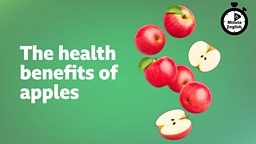
The health benefits of apples
Episode 230223 / 23 Feb 2023
Could 'an apple a day keep the doctor away'?


Doomscrolling: Why do we do it?
Episode 230209 / 27 Jan 2023
What is doomscrolling and why are we attracted to bad news? Listen to find out!

Exercise for the lazy
Episode 230202 / 22 Jan 2023
What's the least amount of exercise you should do to stay healthy?

Can AI have a mind of its own?
Episode 230126 / 26 Jan 2023
Hear about the software engineer who became 'friends' with his computer

Climate change: Are there too many people?
Episode 230119 / 13 Jan 2023
Does the size of your carbon footprint depend on where in the world you were born? Listen to find out!

The hidden life of buffets
Episode 230112 / 12 Jan 2023
Neil and Sam discuss buffet meals and the history behind them.

Songwriting
Episode 230105 / 05 Jan 2023
Writing a memorable song isn't easy. So is there an art to good songwriting?




